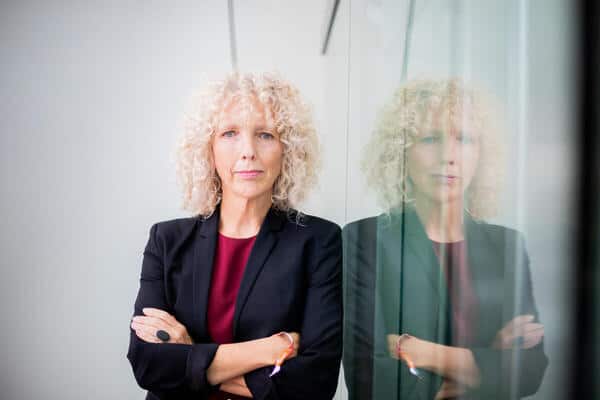Germany’s international envoy on climate has called on Australia to support a push by Germany and the European Union for a phase-out of fossil fuels at the next UN climate summit, saying the world does not “have the time any more” to go slowly on emissions reduction.
Jennifer Morgan, a former co-head of Greenpeace International, said Australia has “choices to make” as it considered future action and underscored the opportunities open to it due to its abundant resources of solar energy and critical minerals needed for the energy transition.
“All countries, including Australia, need to step it up,” America-born Morgan said in Sydney, ahead of travelling to the Cook Islands for the Pacific Islands Forum leaders meeting.
“Of course, every country has to figure out its own plan. But to keep 1.5 degrees in sight, this is what we have to do. And if we don’t keep 1.5 degrees in sight and we go over that, the cost – I mean, the lives of people and the cost to our societies and our economies – it goes almost out of control.”
Morgan’s comments come less than four weeks before the start of the COP28 world climate conference in Dubai, where the EU will push for greater ambition on renewable energy growth, energy efficiency and the phase-out of fossil fuels in a bid to put the world back on track to limiting global warming to 1.5 degrees.
She said Germany also wants to see measures taken at COP28 to build resilience to global warming among nations affected, clear decisions on financing for decarbonisation and adaptation, and progress on the “loss and damage” fund, where rich nations offer funding to vulnerable states hit by climate disasters.
“Those are the areas that I think we have, the European Union has, for the COP, and we’re hoping that Australia will be able to work with us to achieve that energy transformation, that phase-out, the adaptation, the loss and damage and the financing goals.”
She suggested Australia – one of the world’s biggest exporters of coal and liquefied natural gas – needed to take more aggressive action on phasing out fossil fuels particularly as it aimed to host the COP31 summit in 2026 jointly with Pacific nations, which would focus the world’s attention on measures to reduce emissions within the country.
“As Australia moves into … wanting to host COP31, which Germany has supported, really seeing how the Pacific’s needs and goals are front and centre, I think is key,” she said.
“We’re seeing actually now with the UAE presidency [of COP28], how much attention the world puts on what countries are doing domestically, whether it’s in their own reductions, or also in their exploration of fossil fuels.”
Morgan, who will meet with federal Energy and Climate Change Minister Chris Bowen on Tuesday, said the International Energy Agency has been clear that any new development of fossil fuel resources was not in line with the 1.5 degree warming limit.
“I would just hope and encourage that Australia is taking that into account,” she said. “We all need to be decarbonising our own domestic sectors, but also what we are exporting.” Morgan pointed to Germany’s binding commitment to produce only carbon-free cars after 2035.
“In Germany, the automakers are having to diversify and that’s what every country needs to do. So, I think it’s in Australian national interest actually to bring that into its own domestic plans.”
The activist-turned-diplomat dismissed arguments from Australian LNG exports that more gas was needed to help Asia shift away from coal, saying the science was quite clear that “gas really is not a bridge”.
“We don’t have the time any more because you have a significant lock-in time on these gas investments,” she said.
“The climate crisis is so present right now – whether it be here in Australia or in the Pacific Islands, in Europe, in the United States, wherever you look – that we have to accelerate the pace and scale of change.”
She rejected suggestions that Germany’s increasing LNG imports and its decision last year to bring two coal power plants out of reserve undermined the country’s leadership in global climate action, saying Germany was reducing gas use overall, while the coal power revival was an emergency measure that would be offset later to keep climate targets on track.
Morgan also advised Australia to focus on renewables to achieve emissions reduction in electricity, rather than consider nuclear power, given the costs, risks and time involved.
“You have safe, affordable, deployable technology, so I would go that way.” She also doubted carbon capture and storage would help much with emissions reductions in the critical period to 2030 when action was needed to keep the 1.5-degree goal in sight. She said its key role should be in managing emissions from hard-to-abate industries, not taking pressure of the phasing-out of fossil fuels in the energy sector.
